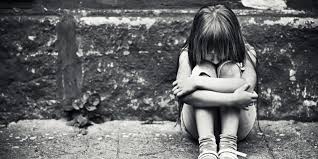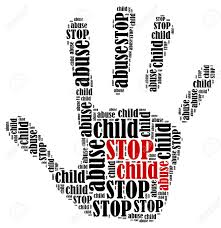Abuse
Researchers who study abuse victims agree the impact of abuse can last a lifetime. Many live with the shame of what happened to them and may suffer with a myriad of mental health problems like depression, addictions, and dissociative disorders. They have trouble with relationships, some self-injure. Others may become abusers themselves. Most people who have been, or are being abused, don't seek help therefore it’s very important to identify the symptoms of different types of Abuse.
There are different types of abuse:
Physical Abuse
Causing physical harm such as: hitting, shaking, pushing, beating, pinching, burning, restraining unnecessarily or other forms of physical harm. Harm can also be caused when a parent or carer fabricates symptoms of ill health or causes actual ill health in a child or young person in their care.
Sexual AbuseForcing or persuading a person to engage in sexual activities they have not consented to or which are illegal for their age. May include rape, sexual assault, prostitution, and may also include non-contact abuse, such as involving the person in creating or looking at pornographic material. Sexual abuse includes activities such as sending sexually inappropriate messages and online or face to face ‘grooming’.
Neglect
Neglect is the persistent failure to meet a person's basic needs, both physical and or emotional or psychological. It may involve failure to provide clothes, shelter and food or failure to keep them clean, healthy or protect them from physical harm or danger. It may also include neglect of, or unresponsiveness to, the person’s basic emotional needs and their developmental needs, such as toilet training, education and life skills.
Emotional or psychological abuseInvolves persistently emotionally or psychologically ill-treating a person to the point where it causes severe and long lasting adverse effects in their emotional development. May involve making a person feel they are worthless, unloved or unvalued, insulting the person, ignoring them, or often making them feel guilty or frightened. Emotional abuse generally takes place within what is supposed to be a ‘caring’ relationship. There can be extra difficulty in identifying an emotionally abusive relationship because emotional or psychological abusers may be unaware of what they are doing. They may believe they do and say the abusive things they do for the benefit of their victim.
Problems experienced by children or young people who have or are being abused include
- Upsetting thoughts and memories
- Sleeping difficulties
- Sexualised behaviour inappropriate for their age
- Problems controlling their anger
- Drug or alcohol problems
- Eating problems
- Social withdrawal
- Anxiety
- Depression
- Self-harming
- Poor concentration
- Bed wetting
- Urinary tract infections (caused by sexual abuse)
Some children do not feel able to disclose the abuse they have suffered for a long time, and many find it extremely difficult to talk about, but they are very likely to need support.
Overcoming abuse doesn't just happen, it takes positive steps every day. Let today be the day you start to move forward. Moving forward in abuse recovery isn't easy, but you can move forward mentally and emotionally even if you're living in an abusive relationship. You can learn to stop emotional abuse and deal with verbal abuse before you even leave an abusive relationship.